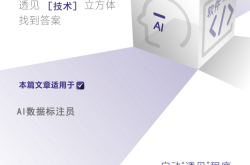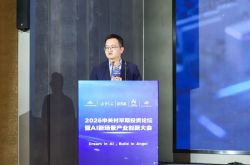Who Will Reign Over the AI Games Era? Tencent, NetEase, and miHoYo in a Stealthy Tech Contest
![]() 07/25 2025
07/25 2025
![]() 554
554

Author | Chen Wen
Source | Dongjian New Research Institute
The 'production capacity barrier' of the gaming industry is being dismantled by AI technology.
Tencent, NetEase, miHoYo... All major game companies are placing their bets on AI. Tencent's Hunyuan has introduced the Hunyuan Game Visual Generation Platform, capable of generating high-fidelity game characters within minutes. NetEase's 'Party Eggs' utilizes AI to democratize UGC creation. miHoYo's latest game revamps narrative logic through real-time multimodal dialogue.
Whether it's Tencent's 'Jili' evolving into a player's AI companion or NetEase's martial arts world crafted by 400 intelligent NPCs, these giants are leveraging technology to prove that AI can not only exponentially boost art and development efficiency but also propel games from 'predetermined scripts' to 'dynamic realms'—ushering in an era where unique stories and companions are generated in real-time for each player.
At the 2025 Global Game Developers Conference (GDC) held in San Francisco, USA, in March, the trend of AI empowering games was already glaringly evident. Out of the 16 themed summits, nearly all forum discussions by game companies and tool providers centered around AI.
Meanwhile, game companies are accelerating their AI deployments. For instance, 37 Interactive invested in over five AI tech firms as early as 2024, while Tencent, NetEase, Giant Network, and Kingnet have established comprehensive foundational capabilities centered around self-developed large models.
According to market.us estimates, the global market size for generative AI in games was $1.43 billion in 2024 and is projected to reach $11.11 billion by 2033, with a compound annual growth rate of 25.6%. Undeniably, AI games have become a must-have for game companies.
Labeled as AI games, they actually encompass two distinctly different application directions.
One focuses on the production end, where AI empowers the development of more intricate and innovative game content with shorter cycles and lower costs, functioning as a productivity tool that continually drives cost reduction and efficiency enhancement. This can be broadly termed 'games crafted with AI.'
Public information reveals that 37 Interactive integrated Shaolin martial arts into the game 'Puzzles & Survival' using AI motion capture technology, cutting the development cycle by 40%. Concurrently, 70% of user issues were addressed through an intelligent customer service system, reducing labor costs by 60%.
During an earnings call, NetEase CEO Ding Lei candidly stated that technologies like DeepSeek have enhanced game development efficiency by 30%, particularly in NPC dialogue design and level testing, where automation has been achieved. Taking 'Justice' as an example, the time for AI to generate mission scripts was shortened from 2 weeks to 3 days, reducing labor costs by 40%.
Tencent's Hunyuan Game Visual Generation Platform boasts four core capabilities: AI art pipeline, real-time canvas, AI 2D art generation, and professional character multi-view generation, all aimed at augmenting game production efficiency.
Moreover, Tencent Games has also launched a no-code game editor called 'Light Game Dream Workshop,' enabling developers to effortlessly edit levels, items, skills, characters, and other logic without coding, further lowering the barrier to game development.
The other direction focuses on the experience end, where generative AI technology is employed to develop more diverse game content tailored to players' individual preferences, thereby offering a gaming experience that is more aligned with players' needs. This can be broadly termed 'AI-driven games.'
In February this year, Tencent's 'Game for Peace' announced the integration of DeepSeek for its digital spokesperson 'Jili,' allowing players to interact with Jili through the 'Ji Shitong' entry in the game lobby. During gameplay, Jili can transform into the player's AI companion.
Leveraging intelligent speech, animation, NLP, and other technologies, NetEase has long experimented with AIGC applications in popular games such as 'Party Eggs' and 'Justice.'
For example, AIGC functionality is embedded within the UGC creation tools of 'Party Eggs,' introducing intelligent Abbys and AI creatures capable of engaging in intelligent dialogue. Starting from 2023, nearly every two to three months, a new AI gameplay feature has been introduced in 'Party Eggs.'
The impact of AI games on the industry is apparent. Taking GTA as an example, this globally acclaimed game has evolved to GTA5. However, it has been 12 years since GTA5, with numerous delays during this period, and there is still no definitive release date for GTA6. The primary reason is the excessively long production cycle for outstanding works, along with the difficulty in controlling the final outcome.
As a player, how many 12-year spans can one experience in a lifetime? With the incorporation of AI, game production efficiency has significantly improved. If the production time for a new version of GTA can be shortened from over a decade to 2-3 years, driving game evolution through high-frequency iterations, it will not only curtail the production cycle of such traditional large-scale games but also generate more marketing buzz.
During its latest earnings call, Tencent addressed investors' queries and revealed the company's perspective on AI games, stating, 'We believe that the advancement of AI technology will directly and indirectly benefit games.'
The direct benefit is that game developers utilize AI to assist in creating more content faster and serving more users more efficiently.
The indirect benefit may be more of a long-term perspective spanning decades. As humans increasingly adopt AI, those currently empowered by AI will have more time and a stronger inclination to engage in highly autonomous activities.
In game development, exceptional content can be produced in a shorter timeframe, enabling the continuous and frequent updating of high-quality content within the game. In terms of PVE, when more intelligent robots are available, the game will become more exhilarating and akin to PVP.
In PVP, when AI is applied to games, numerous tasks such as matching, balancing, and guiding new users can be executed more effectively. All these AI applications can effectively help already popular large-scale games become even more engaging and appealing to users.
However, from a broader perspective, if AI is solely aimed at reducing game development costs and enhancing development efficiency, its development potential will soon plateau. To truly make a difference, it must lead to an increase in revenue and user numbers. Huang Yi, Secretary of the Board and Vice President of Century Huatong, believes that, 'The era of AI games will emerge only when AI makes games more enjoyable and creative.'
Nevertheless, the current capabilities of foundation models are inadequate to drive a genuine experience revolution in AI games.
Yan Kuan, an investor at Lexi Capital, mentioned at a salon that there is currently no game that seamlessly blends the playability of traditional games with being AI-driven. The core issue is that the capabilities of foundation models have not reached a critical juncture. For instance, in terms of reasoning abilities, can intelligent NPCs truly achieve long-term memory?
The crux of the problem lies in the fundamental difference between using large models to reason about NPC behavior logic and using traditional game programs to regulate NPC behavior logic, which boils down to the knowledge base. How to store NPCs' 'memories' and perform interconnected reasoning through these 'memories' is a significant test for large models.
For example, the AI implementations in 'Sixteen Sounds of Yanyun' and 'Justice' have exposed evident 'discontinuity effects.'
The former employs self-developed AI to construct a dynamic martial arts world ecology, allowing NPCs to remember and respond to player actions, enhancing players' immersion in the martial arts world. Conversely, the latter utilizes DeepSeek to create the intelligent NPC Shen Qiusuo, but it has become merely a marketing gimmick due to its limited interactive scenarios.
It is evident that AI games still have a long way to go technologically. While game companies are exploring, they are also awaiting the arrival of the technological singularity of large models.
Currently, large AI models are penetrating the surface of the gaming industry. The AI competition among game companies has gradually evolved from initial technology stacking into a three-dimensional war encompassing 'technological ecologization,' 'emotional value,' and 'industrial collaboration,' with 2025 marking a turning point for AI games.
Referencing the development trajectory of mobile games, casual games may take the lead in exploding, while RPGs and open-world games are still in an exploratory phase due to their high interaction complexity. From a longer-term standpoint, the ultimate winners will need to possess the capabilities of an industrialized base for efficient game production, emotional interactive design, and a global collaboration ecosystem.
When AI ceases to be merely a 'cost-reduction tool' and becomes an 'experience engine,' games will ultimately transcend 'entertainment products' to become an extension of human emotions and creativity. The contest between Tencent, NetEase, and miHoYo is essentially the foundational battle for the next generation of digital civilization.






